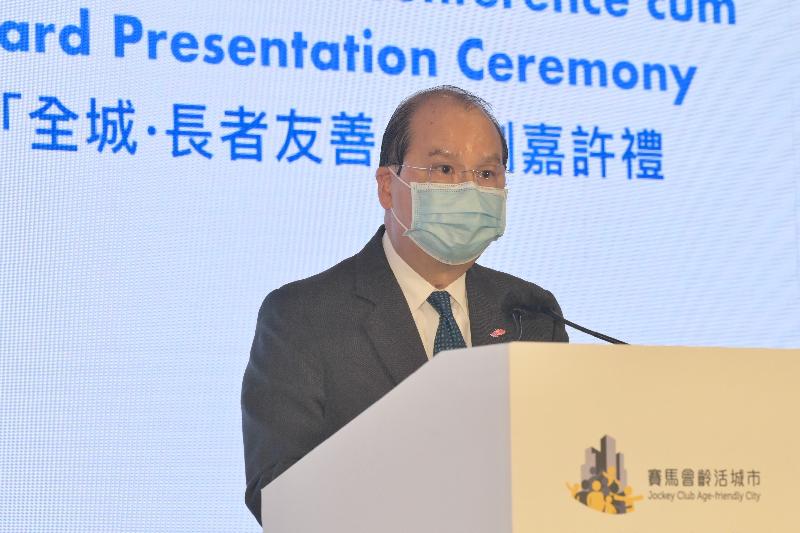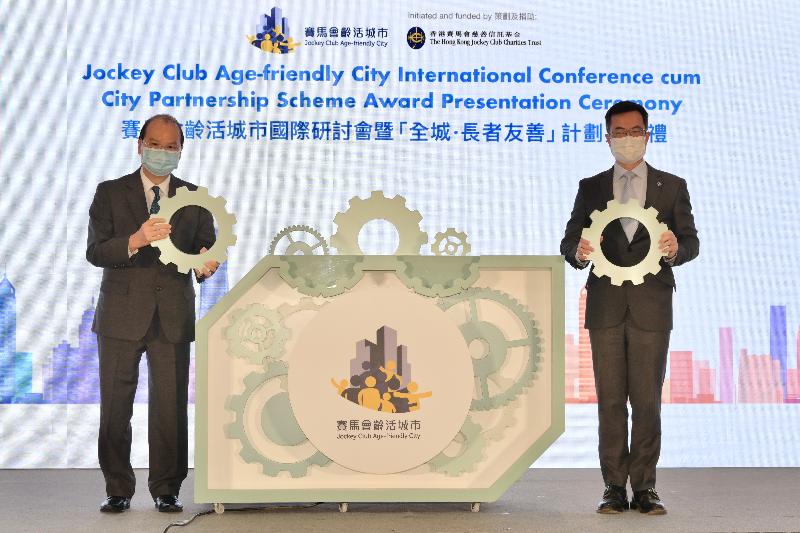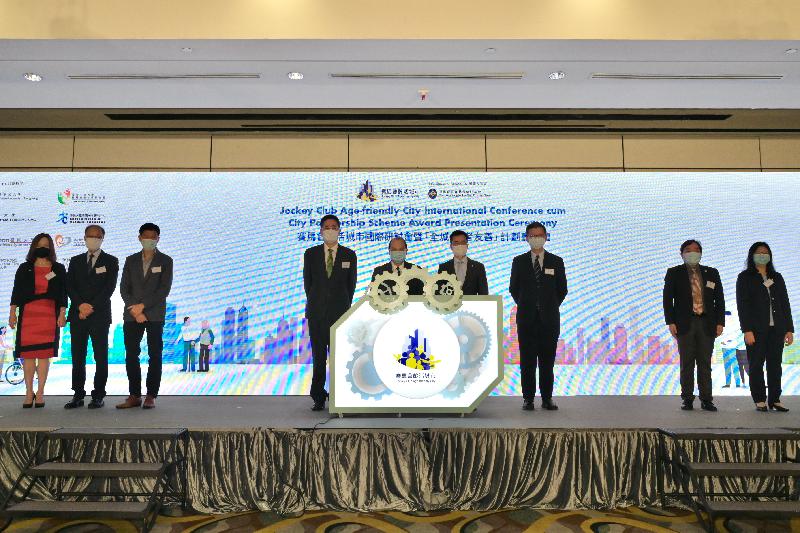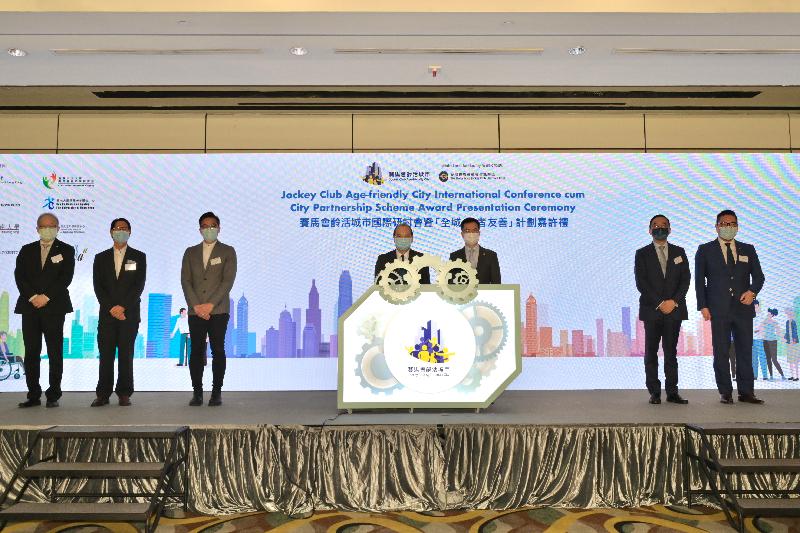Following is the speech by the Chief Secretary for Administration, Mr Matthew Cheung Kin-chung, at the Jockey Club Age-friendly City International Conference cum City Partnership Scheme Award Presentation Ceremony today (June 7):
Mr Cheung Leong (Executive Director of Charities and Community of the Hong Kong Jockey Club), distinguished guests around the world, government colleagues, ladies and gentlemen,
Good morning. It is my great pleasure to join you all today at the Jockey Club Age-friendly City International Conference cum City Partnership Scheme Award Presentation Ceremony.
First and foremost, I would like to express my sincere gratitude to the Hong Kong Jockey Club Charities Trust for organising this meaningful conference, and extend my warmest welcome to all participants. This conference offers an excellent opportunity for local and international participants to share their experience and good practices in building age-friendly cities.
Some 20 years later from now, Hong Kong will become a "silver hair city". By then, almost one in three Hong Kong persons will reach the age of 65 or above. The Hong Kong Special Administrative Region Government is fully aware of this prospect and accords high priority to the well-being of our senior citizens. In the 2021-22 financial year, the estimated recurrent expenditure on elderly social security, elderly healthcare services and long-term elderly care services – the three areas – amount to almost HK$110 billion or US$14.1 billion. This is a lot of money. This accounts for more than 20 per cent of the Hong Kong Government's total estimated recurrent expenditure. In other words, over one in every HK$5 of the Government's recurrent expenditure is spent on our elderly population.
Our elderly policy aims to promote active and healthy ageing under the principle of "ageing in place as the core, institutional care as backup". To this end, we have been implementing various measures, such as the Elder Academy Scheme and the Opportunities for the Elderly Project, to enable our senior citizens to pursue life-long learning and promote their community involvement, thereby encouraging them to unleash their potential and cultivate a sense of self-worth.
To add impetus to encouraging senior citizens to participate more in community activities, we will soon be enhancing the Government Public Transport Fare Concession Scheme for the Elderly and Eligible Persons with Disabilities, also popularly known as the $2 Scheme. Specifically, the $2 Scheme will be extended to red minibuses, kaitos and the tramways on specified conditions and the eligible age will be lowered to benefit more than 600 000 persons aged 60 to 64. The enhancements are planned for progressive implementation from the first quarter of 2022.
Another prime example that I would like to cite, of course, is the Hong Kong Immigration Department's identity card renewal programme, which has been launched for some time. In order to avoid elderly citizens staying at elderly care homes or institutions to go all the way to immigration offices to apply, we adopted a new friendly strategy of reaching out, which means that immigration officers will go to all the institutions to process the applications from the elderly residents there and then, rather than having them travel all the way to the immigration offices to go through the bureaucracy of the application. This is a very popular scheme among the elderly residents in the institutions.
While the Government has spared no effort in promoting a caring ageing community in Hong Kong, we need the support and active participation of the entire community, the business sector and academia to achieve the mission. We are pleased to note that all 18 districts in Hong Kong have already joined the World Health Organization (WHO) Global Network for Age-friendly Cities and Communities. The Hong Kong Jockey Club Charities Trust has greatly complemented the Government's efforts by offering support to the districts in applying to join the WHO Global Network and sustaining the memberships, including conducting baseline assessments on the age-friendliness of the districts, providing funding for organising district-based programmes, as well as recruiting senior citizens and other members of the public as ambassadors to promote the concept of an age-friendly city. On behalf of the Government, let me pay my warmest tribute to the Hong Kong Jockey Club Charities Trust for your sterling support and contribution to cultivating Hong Kong as an age-friendly city.
On this positive note, I would like to congratulate all awardees of the City Partnership Scheme for their outstanding achievements. Your great efforts in promoting an age-friendly culture through adopting age-friendly practices and providing products and services catering for the needs of the elderly are very much appreciated. Let us all join hands in building a truly age-friendly city for our senior citizens to thrive in their golden years. Thank you very much.
Follow this news feed: East Asia










